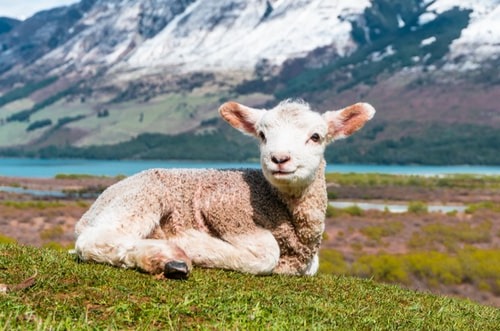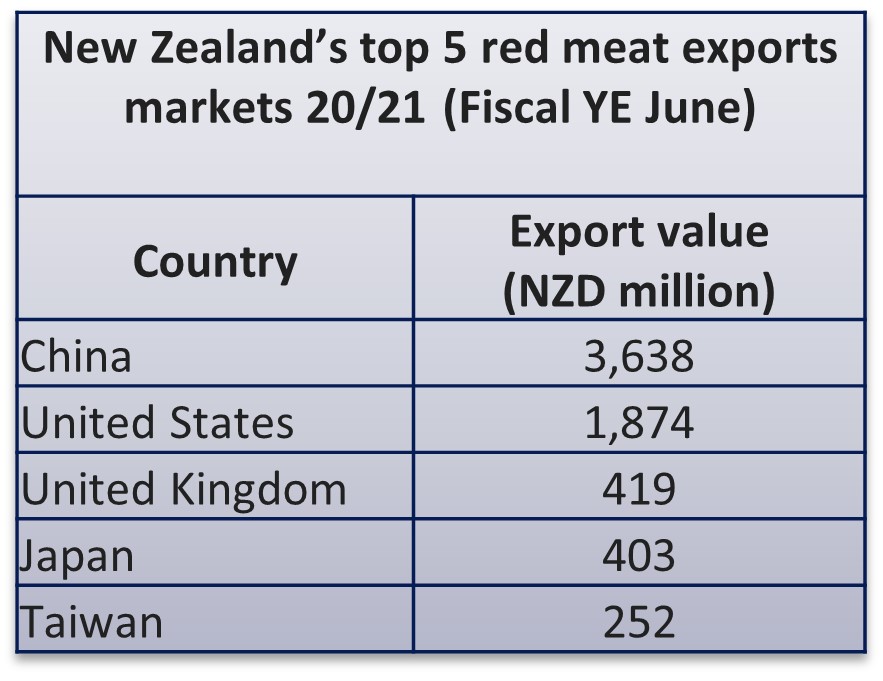The United Kingdom and New Zealand Secures a Tariff-free Trade Agreement on Meat Products

Contents of the free trade agreement
On the last day of February 2022, the United Kingdom and New Zealand signed a new free trade agreement which removes tariffs for 99.5% of all current trade. The agreement will gradually phase out duties on New Zealand beef and sheep meat exports, which by the 11th year for beef and 16th year for sheep meat will be fully liberalized. Until then, product specific safeguards on beef products are applied from years 11 to 15 that impose high tariffs of up to 20% for beef, if New Zealand imports in the UK exceed the outlined volume threshold in a given year. For sheep meat imports into the UK, a duty-free transitional quota will apply during the 15-year transitional period. New Zealand already has a 100,000 mt per annum WTO quota and will only be able to utilize the new access under the FTA once at least 90% of the WTO quota has been filled.
Apart from elimination of tariffs and transitional quotas, the agreement also covers customs and sanitary measures, which will allow goods to be released within 48 hours of arrival. Even more virtuous provisions regarding chilled meat products have also been agreed, which will allow products to be released within 6 hours of arrival. The agreement also features a chapter on animal welfare that includes non-regression and non-derogation clauses, in a bid to ensure that neither country lowers their domestic animal welfare requirements in a manner which impacts trade.
Negotiations have been underway since June 2020 and the results are well received in the New Zealand agricultural industry. Though signed, the agreement is not yet in force as both parliaments will first need to ratify the agreement - something which New Zealand officials hope can happen before the end of 2022. Tariff-free access between the two countries has not existed since the UK joined the European Economic Community (EEC, later European Union) in 1973 and thus Brexit has opened the door to reestablishing strong bilateral trade ties. In other of New Zealand’s major red meat export markets, such as China and Japan, free trade agreements are already in place.
New Zealand’s red meat export
The red meat sector is a vital part of New Zealand’s economy and in fiscal year 20-21 the sector generated 15% of the country’s export revenue and the value of red meat exports was NZD 9.1 billion. Out of the total production, 95% of sheep meat and 86% of beef are destined for export meaning the sector is highly driven by global supply and demand. In 21-22, exports are projected to increase to NZD 9.6 billion.
Prior to the FTA with the UK entering into force, the UK is New Zealand’s third largest red meat export market and in the NZ fiscal year 20-21, meat worth NZD 419 million was exported to the UK. Sheep make up the vast majority of meat exports to the U.K as only 4,300 mt of frozen and chilled beef was exported to the U.K during the calendar year 2021.

Data source: MIA
Outlook on potential effect of the agreement
New Zealand is hopeful that the new free-trade agreement can strengthen their position on the U.K market following a 20-21 season, where sheep meat exports to the U.K declined 17% YoY. As for beef, the U.K is 75% self-sufficient and thus relies on import in excess of 300,000 mt per year, which grants New Zealand an opportunity to gain higher market share. In the U.K, the National Farmers’ Union has criticized the government for forcing farmers to compete at unfair terms with their New Zealand colleagues, as the British farmers does not benefit from the same sort of long-term and well funded strategic agricultural investments that has allowed New Zealand’s beef and sheep sectors to grow into one of the most export-oriented. Fears are that U.K farmers will be completely outcompeted on both the domestic beef and sheep meat markets, as prices of U.K products generally are priced higher than their New Zealand counterparts.

